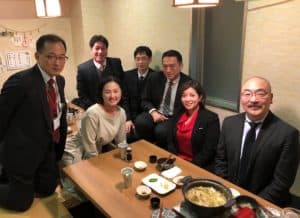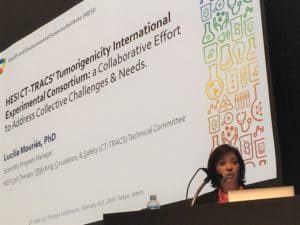RISK21 Committee Highlighted in Recent OECD Report
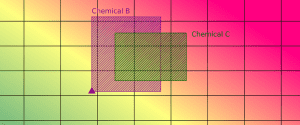
The HESI RISK21 Committee was highlighted in a recent OECD Joint Meeting of the Chemicals Committee and the Working Party on Chemicals, Pesticides, and Biotechnology report as an “essential resource.” The document includes a case study from Health Canada titled “Drinking Water Chemicals Prioritization Process,” in which the RISK21 approach was used to prioritize drinking water contaminants and update existing guidelines.
It is concluded in the report that using the RISK21 model was considered “a significant improvement from the previous exercise.” Click here to read the full document.
2019 HESI Annual Report
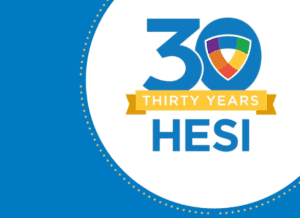
HESI’s 2019 Annual Report is here! This year, we’re debuting a new Annual Report format that prioritizes metrics in an effort to communicate clearly and effectively about the impact of HESI programs, our achievements throughout the past year, and our focus moving forward. Click here to see summaries of each program’s annual accomplishments, publications, outreach initiatives, future goals, and more.
Novel Framework for New Approach Methodologies (NAMs) for
Human Health Safety Assessment

The HESI Framework for Intelligent Non-Animal Methods for Safety Assessment Committee is pleased to announce the release of a novel framework to guide the evaluation and application of new approach methodologies (NAMs). The framework, published in Regulatory Toxicology and Pharmacology (Parish et al. 2020), reflects the consensus of a multi-national, multi-stakeholder expert group led by HESI.
In an effort to reduce and refine animal use for safety testing, NAM development and use is growing rapidly; however, easily understood approaches for characterizing when and why a specific NAM is adopted can be elusive. This newly published framework addresses this need with well-defined but flexible criteria to build scientific confidence in the use of NAMs. The approaches described in this publication can be applied to existing NAMs but are also anticipated to facilitate the development of new NAMs for regulatory and other evaluative applications.
COMPARE Allergen Database 2020
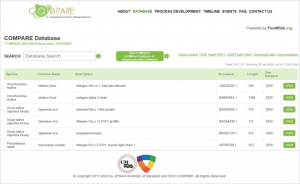
The COMPARE Allergen Database 2020 was released on 29 January 2020 and is available at comparedatabase.org. This is the fourth iteration of the COMprehensive Protein Allergen REsource (COMPARE) and 2,248 allergen sequences are part of this updated version.
This year, as part of COMPARE’s commitment to continuous improvement, we have conducted two additional processes in addition to the annual screenings. Find out about the “Historic Screenings” and “Audit” in the “Documentation 2020” file (go to “Database” tab > “Documentation”). COMPARE’s companion tool, “COMPASS” (COMPare Analysis of Sequences with Software), was launched on 7 June 2019 and remains available; it will now run on COMPARE 2020. COMPASS allows website-based, real-time use of the COMPARE database to run bioinformatics comparative sequence analysis.
CT-TRACS Committee in Tokyo, Japan
The HESI CT-TRACS Committee was represented at the IABS Cell Therapy Conference on 4–5 February 2020 in Tokyo, Japan. HESI was invited to speak and co-chair Session 3, where the CT-TRACS Tumorigenicity Multi-Site Study initiative “Tumorigenicity Assessment of Cell Therapy Products” was presented and discussed.
Cell therapy leaders from nine countries convened to discuss progress on regulatory updates, analytical technologies applicable to cell and gene therapies, characterization, and safety. The tumorigenicity topic was highlighted in concluding remarks from the organizers for making great progress and for its structured approach, which could serve as a model for other areas where international convergence is deemed possible. To learn more about the CT-TRACS Committee, click here.
HESI Sessions at SOT 2020

The HESI RISK21 Committee and the Botanical Safety Consortium (BSC) will present their work at SOT 2020 in Anaheim, California, on 18–19 March 2020. Additionally, Dr. Syril Pettit, HESI Executive Director, will participate in the SOT/EUROTOX Debate “Individual Toxicity is the Future of Risk Assessment” as the SOT Debater on 16 March 2020.
Monday, 16 March 2020
4:45–6 PM, Ballroom A
SOT/EUROTOX Debate: Individual Toxicity is the Future of Risk Assessment
- SOT Debater: Syril Pettit (HESI)
Wednesday, 18 March 2020
8–10:45 AM, Room 303C
Applying Modern Toxicology to Dietary Supplements With Ancient Roots: Botanical Safety in the 21st Century
- Presenting Author: Michelle Embry (HESI)
- Abstract Number: 2469–2474
Thursday, 19 March 2020
8:30–11:15 AM, Room 304A
Application of RISK21 Framework in Regulatory-Based Decision Making: From Business Decisions to Prioritization to Risk Assessment
- Chaired by Michelle Embry (HESI) and Doug Wolf (Syngenta)
- At 9:30 AM: Using the RISK21 Framework as a Tiered Approach for Chemical Risk Assessment: A Proof of Concept
-
- Presenting Author: Sandrine Deglin (HESI)
- Abstract Number: 3240–3245
Cancer Immunotherapies
Training Course
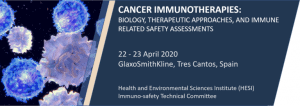
The HESI Immuno-Safety Technical Committee (ITC) is holding a training course in Tres Cantos, Spain, on 22–23 April 2020 on the topic of cancer immunotherapies. This two-day course will provide the foundation biology, describe therapeutic approaches across the various modalities, and discuss other safety-related issues. For more information and to register, please visit the website or contact Stan Parish (sparish@hesiglobal.org).
CT-TRACS Session at
ISCT 2020 Annual Meeting

The HESI CT-TRACS Committee is pleased to present a session titled “Imaging Cellular Therapeutics” at the International Society for Cell & Gene Therapy (ISCT) Annual Meeting on 29 May 2020 from 10:45 AM to 12:15 PM in Paris, France. Guest speakers will provide insights into how non-invasive in vivo cell tracking technologies and methods can aid in the assessment and management of eventual toxicities, provide opportunities to optimize the safety and efficacy of cell-based therapies, and, ultimately, benefit their clinical translation.
The full ISCT Annual Meeting will take place 27–30 May 2020 and through its theme, “Accelerating CGT Adoption – Proof of Concept to Standard of Care,” will showcase advancements in both the understanding and clinical translation of many biological systems including MSCs, immune effector cells, and extracellular vesicles, as well as recent progress in mastering such biotechnologies as tissue and cell engineering, organoids, gene editing, and iPSCs. Additionally, ISCT 2020 represents a unique opportunity to gather with interested stakeholders from around the world who share the vision of a future in human medicine in which cell and gene therapies add to the portfolio of potentially curative therapies.
Click here to learn more about the ISCT-HESI CT-TRACS Joint Session.
Save the Date!
HESI 2020 Annual Meeting
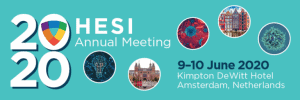
Save the date! The HESI 2020 Annual Meeting will be held 9–10 June 2020 at Kimpton DeWitt Hotel in Amsterdam, Netherlands. This year’s program features exciting speakers on topics including implementing artificial intelligence approaches to improve human and environmental health protection, innovating toxicology and safety assessment, and more, as well as great opportunities to network with leading scientists from around the globe. Click here to learn more and stay tuned for more information on the agenda, speakers, and room blocks.
From the Leadership

The HESI Board of Trustees has identified two strategic objectives for 2020. At the Board meeting in January, breakout groups held lively discussions to focus on achievable goals. As mentioned in the January issue of HESI Insights, the first strategic objective centering on global outreach will explore areas with high environmental and health burdens but limited HESI activity. The second strategic objective is to further enhance the role of the public sector in HESI’s scientific programs. The initial efforts will be directed toward academia where the visibility of HESI as a scientific organization is minimal. The working group is continuing to design and implement programs that will increase academic engagement. Success in this arena will meet the goal of broadening, deepening, and enhancing HESI science.
![]()
Charlene McQueen, PhD
HESI President
